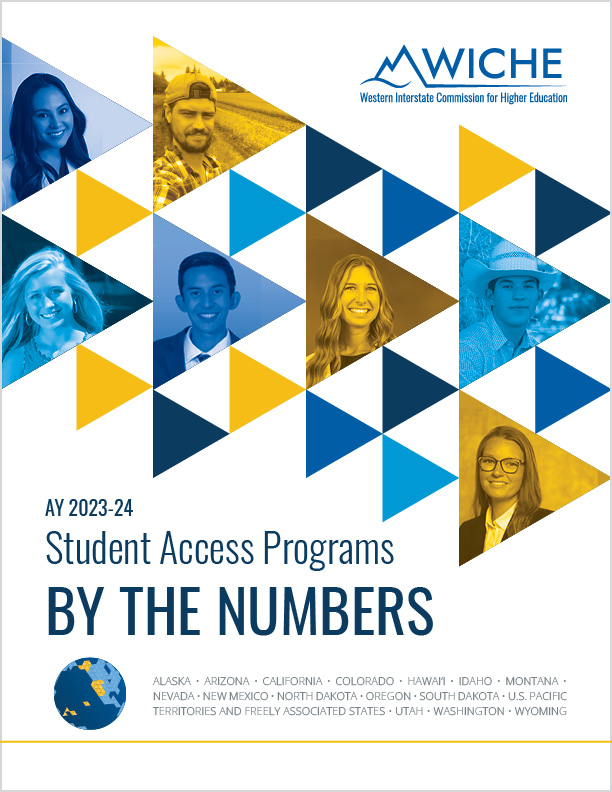Summary
Student Access Programs: By the Numbers Academic Year (AY) 2023-24 contains the most recent data, as well as participation and migration statistics by each WICHE state and eligible Pacific Island jurisdiction, for each of our three tuition savings programs. Additionally, this report includes data summaries that provide reference points for key populations such as college students and their families, high school counselors and academic advisors, postsecondary institution leaders and enrollment management staff, and policymakers.
Detailed WUE and WRGP enrollment information is here:
Details
- Year Published : 2024
- Month Published : May
- Media Type : pdf
